
Primary elections or primaries are elections held to determine which candidates will run in an upcoming general election. In a partisan primary, a political party selects a candidate. Depending on the state and/or party, there may be an "open primary", in which all voters are eligible to participate, or a "closed primary", in which only members of a political party can vote. Less common are nonpartisan primaries in which all candidates run regardless of party.

The Republican National Committee (RNC) is the primary committee of the Republican Party of the United States. Its members are chosen by the state delegations at the national convention every four years. It is responsible for developing and promoting the Republican brand and political platform, as well as assisting in fundraising and election strategy. It does not have direct authority over elected officials. It is also responsible for organizing and running the Republican National Convention. When a Republican is president, the White House controls the committee. According to Boris Heersink, "political scientists have traditionally described the parties' national committees as inconsequential but impartial service providers."

The Communist Party of Canada is a federal political party in Canada. Founded in 1921 under conditions of illegality, it is the second oldest active political party in Canada, after the Liberal Party of Canada. Although it does not currently have any parliamentary representation, the party's candidates have previously been elected to the House of Commons, the Ontario legislature, the Manitoba legislature, and various municipal governments across the country.
Elections Canada is the non-partisan agency responsible for administering Canadian federal elections and referendums. Elections Canada is an office of the Parliament of Canada, and reports directly to Parliament rather than to the Government of Canada.

The 1924 United Kingdom general election was held on Wednesday 29 October 1924, as a result of the defeat of the Labour minority government, led by Prime Minister Ramsay MacDonald, in the House of Commons on a motion of no confidence. It was the third general election to be held in less than two years. Parliament was dissolved on 9 October.
The North Dakota Democratic–Nonpartisan League Party is the North Dakota affiliate of the national Democratic Party. It was formed as the outcome of a merger of two parties; the state previously had a three-party political system. It is one of only two state Democratic Party affiliates to have a different name from the central party, the other is the neighboring Minnesota Democratic–Farmer–Labor Party.
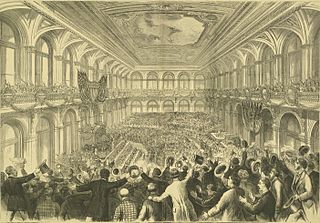
A United States presidential nominating convention is a political convention held every four years in the United States by most of the political parties who will be fielding nominees in the upcoming U.S. presidential election. The formal purpose of such a convention is to select the party's nominees for popular election as President and Vice President, as well as to adopt a statement of party principles and goals known as the party platform and adopt the rules for the party's activities, including the presidential nominating process for the next election cycle. Conventions remain an important part of the political process despite the nominees almost always being determined during the primary season, as they provide positive publicity for the nominee and party, which can then lead to a convention bounce.

A political campaign is an organized effort which seeks to influence the decision making progress within a specific group. In democracies, political campaigns often refer to electoral campaigns, by which representatives are chosen or referendums are decided. In modern politics, the most high-profile political campaigns are focused on general elections and candidates for head of state or head of government, often a president or prime minister.

Belarus elects on national level a head of state—the president—and a legislature. The president is elected for a five-year term by the people. The National Assembly has two chambers. The House of Representatives has 110 members elected in single-seat constituencies elected for a four-year term. The Council of the Republic has 64 members, 56 members indirectly elected and eight members appointed by the president.

Political campaign staff are the group of people who formulate and implement the strategy of a political campaign. Campaign staffs are generally composed both of unpaid volunteers and paid employees of either the campaign itself or a related political party. The staff may include political consultants who provide advice and assistance to a campaign.

Elections in California are held to fill various local, state and federal seats. In California, regular elections are held every even year ; however, some seats have terms of office that are longer than two years, so not every seat is on the ballot in every election. Special elections may be held to fill vacancies at other points in time. Recall elections can also be held. Additionally, statewide initiatives, legislative referrals and referendums may be on the ballot.
The 2008 Green National Convention took place on July 10–14, 2008 in Chicago, Illinois at the Palmer House Hilton and Symphony Center. This served as both the venue for the National Convention and the Annual Meeting of the Green Party of the United States.

The Libertarian Party of Nevada (LPN) is the affiliate of the Libertarian Party in the state of Nevada. It is headed by State Chair Charles Melchin.

The election of the president and for vice president of the United States is an indirect election in which citizens of the United States who are registered to vote in one of the fifty U.S. states or in Washington, D.C., cast ballots not directly for those offices, but instead for members of the Electoral College. These electors then cast direct votes, known as electoral votes, for president and for vice president. The candidate who receives an absolute majority of electoral votes is then elected to that office. If no candidate receives an absolute majority of the votes for president, the House of Representatives elects the president; likewise if no one receives an absolute majority of the votes for vice president, then the Senate elects the vice president.
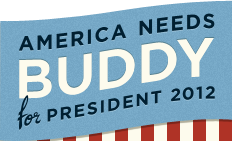
The 2012 presidential campaign of Buddy Roemer, 52nd Governor of Louisiana and former U.S. Representative of Louisiana began as a movement for the 2012 Republican Party nomination for President of the United States shortly following the 2010 midterm elections. After his exclusion from every nationally televised Republican debate, Roemer announced on February 22, 2012, that he would instead pursue a place on a third-party ticket, specifically the Reform Party and Americans Elect nominations. Shortly after Americans Elect announced they would not be fielding a candidate, Roemer's campaign announced on May 31, 2012, that he was ending his 2012 presidential campaign altogether.
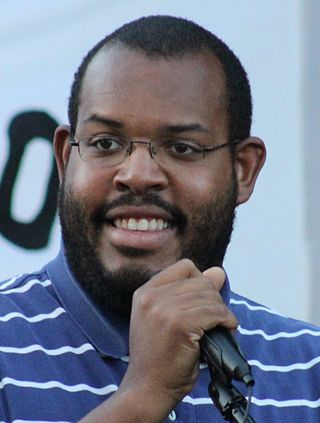
Eugene Puryear is a left-wing American journalist, writer, activist, politician, and host on BreakThrough News. In 2014, he was a candidate for the at-large seat in the DC Council with the D.C. Statehood Green Party. In the 2008 and 2016 United States presidential elections, Puryear was the vice presidential nominee of the Party for Socialism and Liberation (PSL), despite being ineligible to become vice president due to his age.

The Party for Socialism and Liberation (PSL) is a communist political party in the United States. PSL formed in 2004, when its members split from the Workers World Party.
A series of political debates were held between the Green candidates for president in the 2016 United States presidential election.
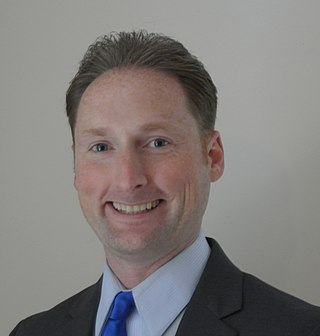
Albert "Max" Abramson is an American politician who most recently served as a member of the New Hampshire House of Representatives, representing Rockingham District 37 from 2018 to 2022. He previously represented the same district from 2014 to 2016. He ran for the nomination of the Libertarian Party for the 2020 presidential election, but dropped out on March 3, 2020.
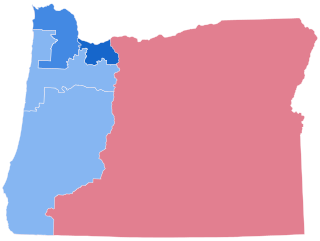
The 2020 United States House of Representatives elections in Oregon was held on November 3, 2020, to elect the five U.S. representatives from the state of Oregon, one from each of the state's five congressional districts. The elections coincided with the 2020 U.S. presidential election, as well as other elections to the House of Representatives, elections to the United States Senate, and various state and local elections.















